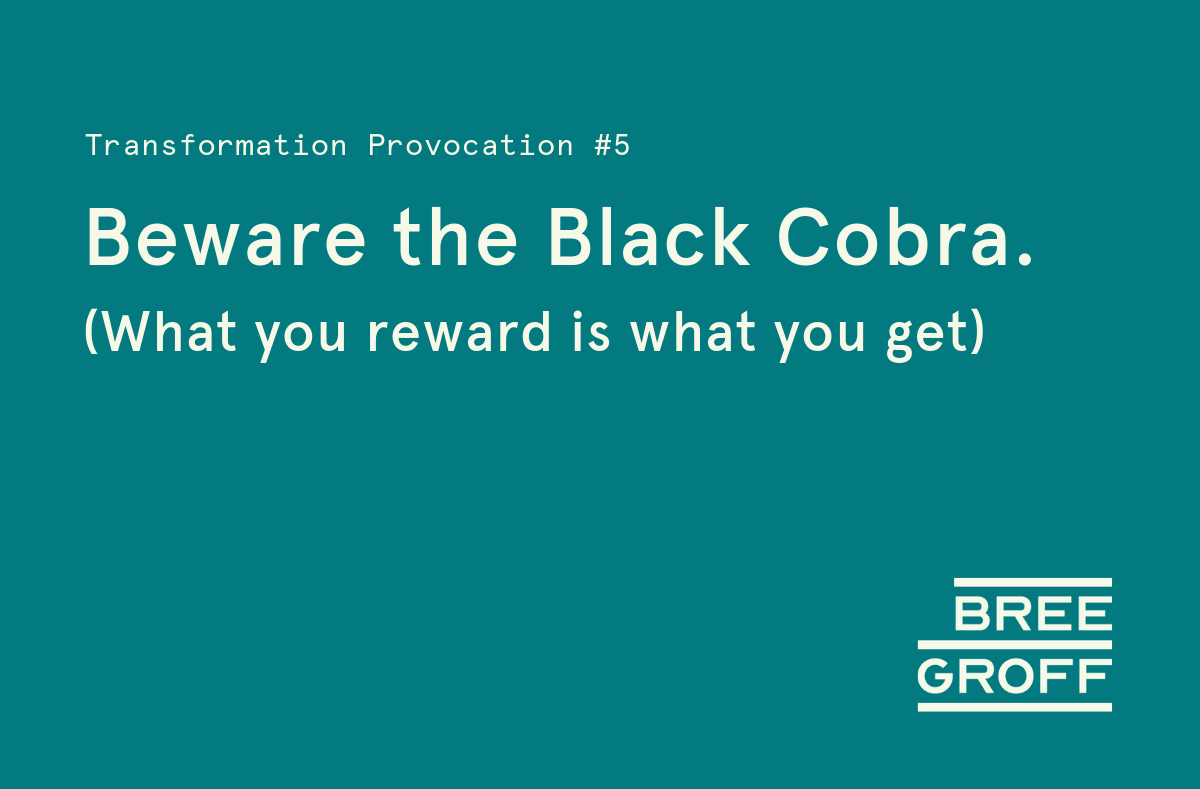A few weeks ago I spent a day with a client as we redesigned their executives’ incentives. The client is on a transformation journey to become more digital, more innovative, more all-the-things-modern-companies-want-to-be. Which also means that they need modern incentives that don’t reward executives solely for financial performance, but also for things like promoting psychological safety and investing in innovation.
I gave a short talk on the psychology of incentives (monetary and otherwise)—where they work, where they don’t, and interestingly, where they hurt.
That’s where we find the Black Cobra.
At the time of British colonial rule in India, leaders were concerned about the number of venomous snakes in Delhi. They devised a simple incentive system, aimed at motivating people to kill the snakes as they found them: deliver a dead cobra to the government, collect a bounty. Simple, right? Reward the behavior you seek.
But residents were a bit more enterprising than leaders bargained for. Many started breeding snakes, so that they could in turn kill them, and collect the bounty. When the government found out, they canceled the program. The breeders released the now-worthless snakes, inundating the city.
It’s called a perverse incentive: a reward that incentives the opposite of what you seek.
It happened when IBM decided to pay programmers for each line of code.
It happens when leaders reduce the budgets of frugal departments and increase the budgets of those that overspend.
And it happens when you incentivize CEOs with bonuses for good-looking earnings reports in lieu of long term impact and business vitality.
What you reward is what you get. Make sure it’s what you want.




